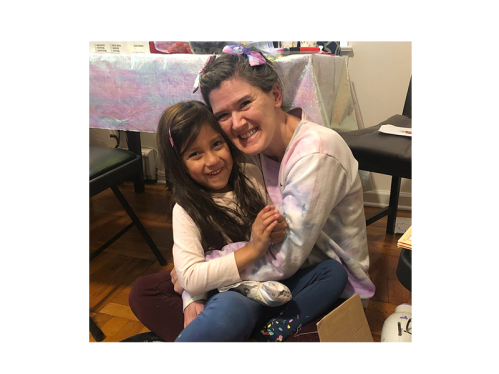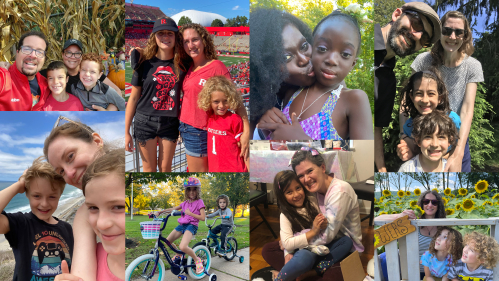
Why I'll Vaccinate My Kids
The federal government edged closer to emergency use approval of the Pfizer COVID-19 vaccine for children ages 5-11 following a vote on Tuesday by the Food and Drug Administration to recommend the shot for this age group in advance of a Centers for Disease Control and Prevention meeting next week. With the latest action laying the groundwork for the vaccine to become available to children 5 and older in early November, Rutgers faculty and staff share reasons for why they'll vaccinate their children.
Daniel Horton
Assistant professor of pediatrics and epidemiology
Rutgers Robert Wood Johnson Medical School, Rutgers School of Public Health and Rutgers Institute for Health, Health Care Policy and Aging Research
After the billions of COVID-19 vaccine doses given worldwide, we've seen in real-time the amazing benefits and impressive safety of them. On the other hand, we're continuing to see people get sick from the COVID-19 disease, especially among the unvaccinated and, increasingly, among young children. Now seeing the latest data for children 5-11, there is no doubt we'll be calling for a vaccine appointment for our kids on the day it's approved.
We've been fairly protective of our kids. They've been going to school, doing sports and seeing friends, but we've had to hold off on other things like visiting relatives far away. With the protection from the vaccine, we'll be much less stressed out with something like sleepovers, watching movies in the theater and plane rides. We also won't worry as much about their potential of infecting others who are less protected or more susceptible to getting very ill.
During this pandemic, I have cared for children with severe inflammation throughout their bodies after contracting the disease. Often, these kids had few or no symptoms from the initial infection. We still don't know why some kids with COVID-19, most of whom were previously healthy, develop the multisystem inflammatory syndrome. Though it's rare, it's serious and if I can wipe that risk out through vaccination, I will do so for my children.
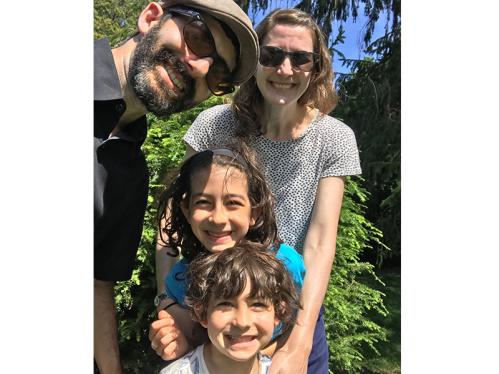
Lisa Intrabartola
Senior public relations specialist
Rutgers University Communications and Marketing
My husband and I read up on the COVID-19 vaccine trials and trusted the science that guided them. We leaped at the chance to receive the Pfizer vaccine this spring before it received FDA approval. For two people in their forties, the decision to inoculate against possible hospitalization, intubation and death was a no-brainer.
But when our daughter turned 12 this summer, instead of pouncing on the opportunity, we paused for a moment to consider the fears keeping some parents from vaccinating their eligible children. The rapidly spreading Delta variant and additional research quickly made us realize those fears were unfounded at best and irrational at worst. Then we posed the question to our daughter. For a kid who always asks at her annual physical, "Do I have to get a shot?" her answer humbled us. "Of course, I want the vaccine. Even if I don't get sick, what if I spread COVID to others? I don't want to be the reason someone dies," she said. And just like that, the selfishness at the heart of our hesitancy was exposed. Sure, she and our 7-year-old son would likely escape COVID-19 unscathed, but what about all the children – or adults for that matter – with cancer or compromised immune systems, who couldn't take the vaccine and wouldn't be so lucky if they contracted the virus?
Within days, she walked into our local pharmacy hand-in-hand with her best friend, got their shots together and wore their Band-Aids like badges of honor. We are now counting down the days until our son can do the same. Thanks to vaccinations and our once universal belief in supporting the greater good, my generation grew up protected from diseases that our parents feared, suffered through or succumbed to, including measles, mumps, rubella, smallpox pertussis and polio.
Until more Americans – especially our school-age children, who, as any parent knows, are super-spreaders by nature – take advantage of safe and available COVID vaccinations, we won't be able to put this pandemic in our past where it belongs.
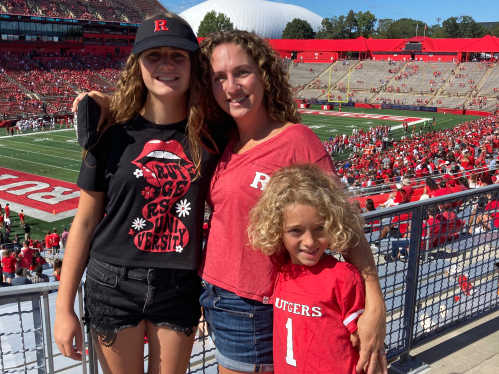
Emily Barrett
Associate professor of biostatistics and epidemiology
Rutgers School of Public Health
I do not doubt that on the day the announcement is made of the vaccine getting approved for EUA for kids, I'm lining up my 9-year-old daughter and 11-year-old son to get vaccinated. Many studies have shown that in adults, the vaccines have been overwhelmingly successful in preventing people from getting really sick, with the benefits far outweighing any side effects.
As a parent, I have also seen first-hand the mental health impact the pandemic has had on my children with being isolated during remote schooling. The vaccines are offering us this route to avoid returning to remote schooling. My worst fear right now as schools have reopened to in-person teaching is an outbreak of the disease and the kids will have to quarantine, disrupting their ability to experience in-person learning again. We know that remote learning was not great for their mental health and ability to interact with people, which has proven beneficial for kids socially.
I still strongly advocate for kids to adhere to all the standard preventive measures like wearing masks, socially distancing and washing their hands, but vaccinations are really the key to preventing large-scale disease outbreaks this school year.
For parents who are scared or hesitant to get their kids vaccinated, I'll encourage them to talk to trusted, reputable sources like health care providers, community leaders, and scientists they trust to debunk the myths they hear about in the news and online.
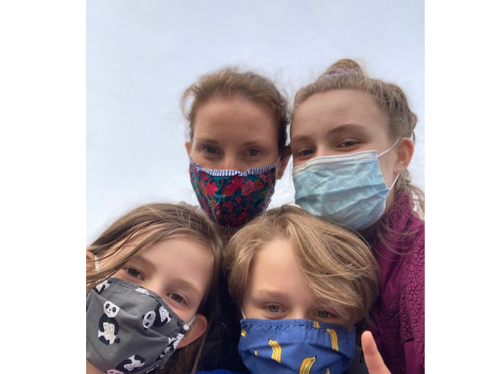
Ohemaa A. Boahemaa
Coordinator of practice and global affairs
Rutgers School of Public Health
I've seen what diseases can do to a person, families and communities as I grew up and lived in other countries all my life. For me, having a daughter who is immune-compromised and seeing her father who contracted polio at a young age, I know medicines and vaccines are life-saving.
Part of my decision to make sure my daughter is safe is because I trust science and doctors and believe that they want to advance humanity. I also tend to do my research and read a lot of studies and journals. The question I ask myself is, "What is the worst possible thing that can happen if I get ill, and is that worth it?"
I believe getting children vaccinated will help a lot more people move around without fear any longer. Although I believe COVID-19 will still be around with preventive measures still being in place, the risk of disease will be significantly mitigated among large groups of people. I believe the distrust people have of each other will also subside as we currently walk around not knowing many people's vaccination status and thinking they might be infected.
For parents or even adults without children who are still vaccine-hesitant, I'll tell them to find trusted people who genuinely understand medicine and science and ask all the questions, and most importantly, trust the answers that are given.
With conversations within my community, I've always encouraged people to get the first shot, especially for the Pfizer and Moderna vaccines. Just talking yourself into getting the first shot at least gives you more protection than nothing at all, and then after that, you can proceed with mastering the courage for the second shot.
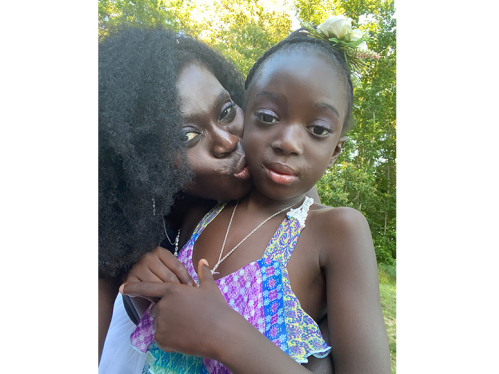
Zorimar Rivera-Núñez
Assistant professor of epidemiology, Rutgers School of Public Health
Environmental and Occupational Health Sciences Institute
This wasn't a hard decision, as a scientist I trust the data and information that have been released about the vaccines, so this is a safe way to protect my kids. I'm hoping that after they get vaccinated, they'll be able to enjoy a little bit more freedom to go about their lives, which is essential for their growth. As a parent, I will have less fear and anxiety of them getting sick.
For vaccine-hesitant parents or adults without children, I'd say that it's OK if they feel that way. Their feelings and concerns are valid because, in the same way, I think getting my kids vaccinated protects them; those parents are also thinking about protecting their kids. So, our fears and need to protect our children come from the same place, and I respect that.
I'll ask that they speak with their primary health care providers or pediatricians they trust and ask them all the questions they have. They do not have to wait until the vaccine is approved. Pediatricians and family physicians are in constant contact with families, and they know the kind of concerns parents have about vaccinations. Getting informed and understanding the science behind the vaccine are major steps when making difficult decisions about their children’s health.
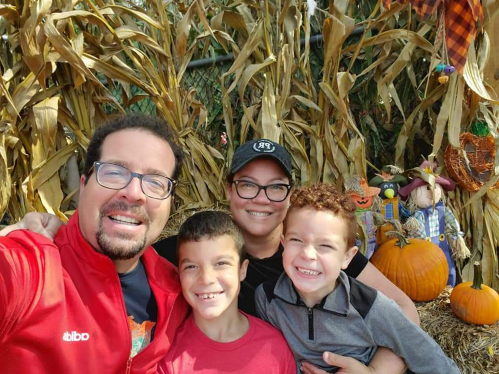
Andrea Alexander
Managing editor, Rutgers Today
Ever since I got vaccinated, I said that I would plan to have my kids first in line for the COVID-19 vaccine as soon as it's approved for children ages 5 to 11.
I am going to get my kindergartener and second-grader vaccinated because I believe in science. I am tired of living in a constant state of fear that has been hanging over parents of young children ever since the vaccine became available to adults, indoor mask mandates were lifted and the world moved on for everyone else. I am tired of worrying that every sniffle could lead to a quarantine. I am tired of being afraid to check my email because there might be a close contact notice from their school. I want my children to be able to hug their friends without me wondering if it's OK. I can't wait until indoor birthday parties are safe, we can walk in the mall on rainy days again without fear and go to indoor play gyms when it's too cold to be outside.
Last year was a string of school quarantines, trying to work while managing my daughter's classes on Zoom and tears when it was time to go back to the classroom because, during the pandemic, this fiercely independent girl didn't want to leave my side.
I’m getting my children vaccinated because I want them to have stability, uninterrupted school and indoor playdates with friends. I believe vaccines are the ticket to bringing back the stability my children – all children – deserve. I depend on other families to make the same decision to keep everyone safe, so we can finally return to some sense of normal, whatever that turns out to be.
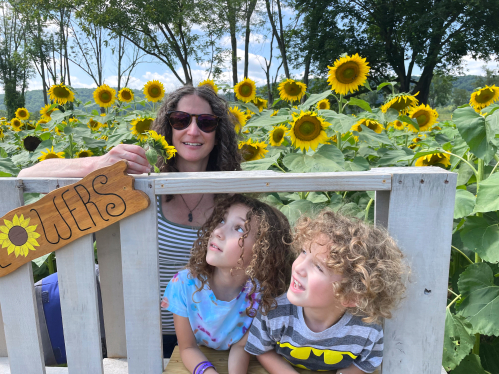
Sarah W. Kelly
Coordinator of practice and alumni affairs
Rutgers School of Public Health
After participating in clinical trials, I know and trust the importance of science and medicine in advancing our daily lives, which is why I also got my daughter enrolled in the Pfizer pediatric trial at Rutgers. She's so excited about being part of the trial and tells anybody who would listen about her participation.
My biggest fear as a parent is having either my kid or someone else's kid getting really sick or worse after contracting the disease. And even for my daughter, she doesn't really remember life without a mask, which even comes to bear when she plays with her toys and puts paper masks on them. So, getting her vaccinated will at least bring some normalcy to her everyday life as she can participate in activities that would require her to interact with other people.
I know a lot of the concerns for vaccine-hesitant people have been how fast the vaccines were developed, but it took a lot of resources to get that done with no corners cut. And with also being involved in a clinical trial, I've seen the commitment and dedication of the nurses and doctors who have served us. Their commitment to safety even included having me document everything during the trial period, documenting every symptom and allowing us to ask any questions my daughter or I have. That only goes to show how thorough our scientists have been in getting this vaccine produced.
